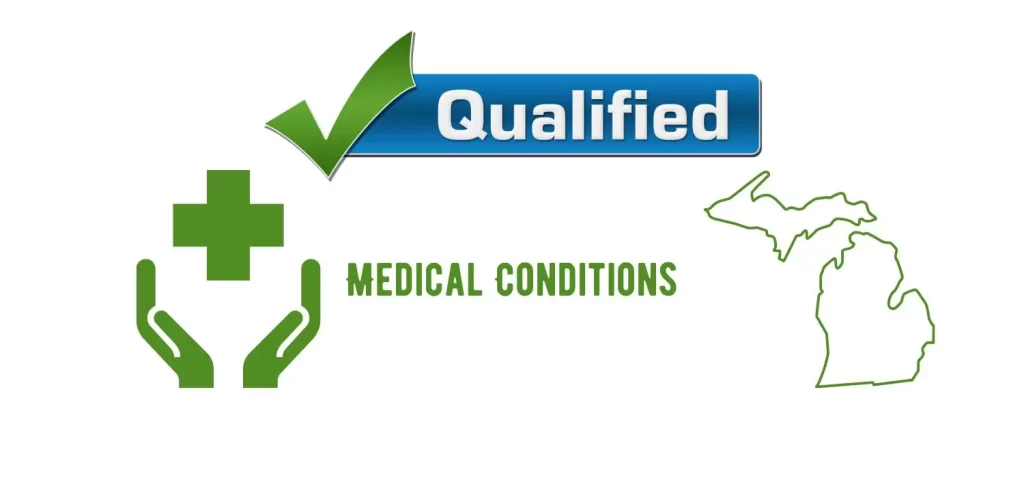MICHIGAN MEDICAL MARIJUANA CONDITIONS
Get a Michigan Medical Card Online
List of the debilitating medical conditions that qualify for a marijuana card in Michigan
- Agitation of Alzheimer’s Disease
- AIDS/HIV Positive
- Amyotrophic Lateral Sclerosis (ALS)
- Arthritis
- Autism
- Cancer
- Cerebral Palsy
- Chronic or debilitating disease or medical condition or its treatment that produces 1 or more of the following:
- Cachexia or Wasting Syndrome
- Severe and Chronic Pain
- Severe Nausea
- Seizures (including, but not limited to, those characteristics of epilepsy)
- Severe and Persistent Muscle Spasms (including but not limited to those characteristics of multiple sclerosis)

- Chronic Pain
- Colitis
- Crohn’s Disease
- Glaucoma
- Hepatitis C
- Inflammatory Bowel Disease (IBD)
- Nail Patella
- Obsessive Compulsive Disorder (OCD)
- Parkinson’s Disease
- Post-Traumatic Stress Disorder (PTSD)
- Rheumatoid Arthritis
- Spinal Cord Injury
- Tourette’s Disease
- Ulcerative Colitis
Greenlight Wellness is one of the first and most reputable cannabis clinics in Michigan.
We make the medical marijuana application process quick and easy. To get approved you must have a medical condition that qualifies for medical marijuana use under Michigan State Statutes.
40K+ patients approved throughout Michigan. We treat ALL Michigan residents virtually through telemedicine.
Marijuana Doctor "near me"? You came to the right place!
Modern technology like telemedicine allows us to see patients in every corner of the state. We currently treat patients who are your neighbors in Detroit, Bloomfield Hills, Ann Arbor, Grand Rapids, East Grand Rapids, Warren, Sterling Heights, Lansing, Dearborn, Livonia, Westland, Troy, Flint, Northville, Wyoming, Canton, Southfield, Macomb, Burton, Rochester Hills, Farmington Hills, Dearborn heights, Kalamazoo, Southfield, Beverly Hills, Forest Hills, Wyoming, Novi, Westland, Huntington Woods, Grosse Pointe, Grosse Point Shores, Farms, Birmingham, to name a few.
In Compliance with the Michigan Board of Health Requirements all Visits include the following:
- A hands-on physician-patient encounter
- A full and documented medical history and relevant physical exam.
- Review of prior medical records and diagnostic tests (if available-not required if none exist)
- Discussion of advantages, disadvantages, alternatives, potential adverse effects and expected response to treatment.
- Development of a plan of care which state goals of therapy.
- Monitoring of the response to treatment and possible adverse effects.
- Communication with the patient’s primary care physician (only if authorized by the patient).
- Follow Up visits

